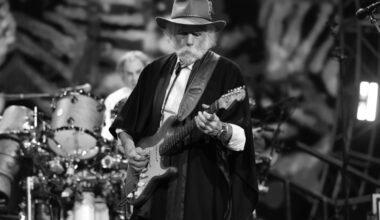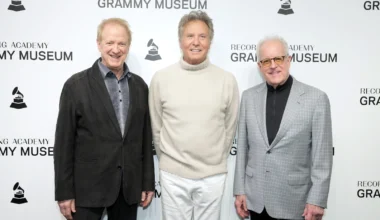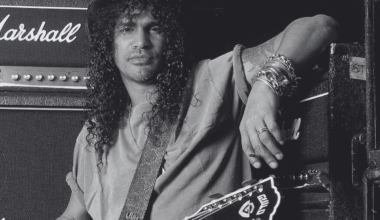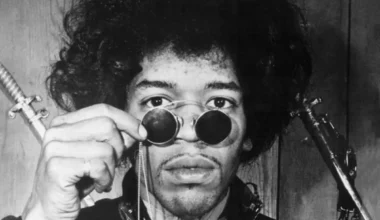In the early stages of an artist’s career, there’s a unique glimpse of discovery and discomfort as they carve out their identity. This early phase can be as revealing as it is raw, offering insights into the artist before they fully embody the personas that shape them. Radiohead’s Thom Yorke, now known for his introspective, mellow style, once harbored a decidedly fiery edge that showed he had no qualms about challenging rock’s big names.
In 1992, Radiohead had just been signed to EMI, released their first single, “Creep,” and completed their debut album, Pablo Honey, which was awaiting release. At the time, they were on the cusp of stardom, yet still largely unknown. That’s when The Scene fanzine interviewed a young Yorke, who didn’t hold back, making sharp remarks on fame, ego, and even legendary figures like Jim Morrison.
During the interview, music journalist Ian Fortnam posed an intentionally provocative question: “How horribly gutted were you by the failure of people to pick up on ‘Creep’?” At the time, the single had sold only about 6,000 copies, a modest start that fell short of any major success.
Yorke’s response was passionate and unfiltered, revealing the frustration he felt about the single’s lukewarm reception: “Absolutely horribly gutted, pissed off, self-righteous. There are good and bad things to it, though. A lot of people are asking, ‘Why isn’t it a hit?’ That’s a good thing. It stands us in good stead.”
When Fortnam then probed about the possibility of re-releasing “Creep” after Radiohead achieved “inevitable success,” Yorke replied with an ironic quip: “There’s no point in re-releasing it until it’s worth it, so yeah… after the inevitable success.” At that point, Yorke seemed to sense that Radiohead’s music could eventually resonate widely, though he was determined to sidestep rock clichés that so many others had fallen into.
In discussing Pablo Honey and what made Radiohead different, Yorke made it clear he had no intention of replicating the egos and attitudes of past rock idols. He specifically took aim at the late Jim Morrison of The Doors, a rock icon famous for his chaotic lifestyle and boundary-pushing antics.
“Anyone Can Play Guitar” from Pablo Honey epitomized Yorke’s anti-rock-star stance. “It’s a really naff thing to say,” he explained, “but one of the principal reasons for being in this band is because of the songs and that we change very, very fast as a band. We have a sound, but at the same time, we change all the time.”
Yorke went on to criticize Morrison in surprisingly blunt terms. “The second verse [of ‘Anyone Can Play Guitar’] is ‘I wanna be Jim Morrison,’ and I’ve got this pathological disrespect for Jim Morrison and the whole myth that surrounds him, simply because it affects and has affected the people in bands and in the rock business, in that they think they have to act like [jerks] in order to live up to the legend.”
According to Yorke, the rock and roll mythos Morrison embodied had a hollow effect on music, making it more about appearances and “mystique” than artistic depth.
In true Yorke fashion, he didn’t stop there. “Jim Morrison’s a fat, talentless bastard, and he’s dead. And none of that means anything. It’s more important just to have your own voice within the business than to live up to this thing that you’re supposed to live up to,” he said, adding a touch of irony in his youthful rebellion against rock mythology.
Yorke pointed to acts like The Stooges as an example of musicians who both embodied rock and mocked its clichés, particularly in how frontman Iggy Pop approached his image. “[Pop] is totally taking the piss so badly,” he noted, referencing The Stooges’ ability to take themselves both seriously and humorously.
Looking back, Yorke’s unapologetic criticism of rock royalty and the stereotypical “rockstar” lifestyle reflects the identity Radiohead would continue to build as an introspective, genre-defying band.
Although Yorke might view these words differently today, they capture a pivotal moment before Radiohead fully emerged from obscurity, offering a raw look at the young artist who sought to disrupt music’s old guard and pave a new path.







